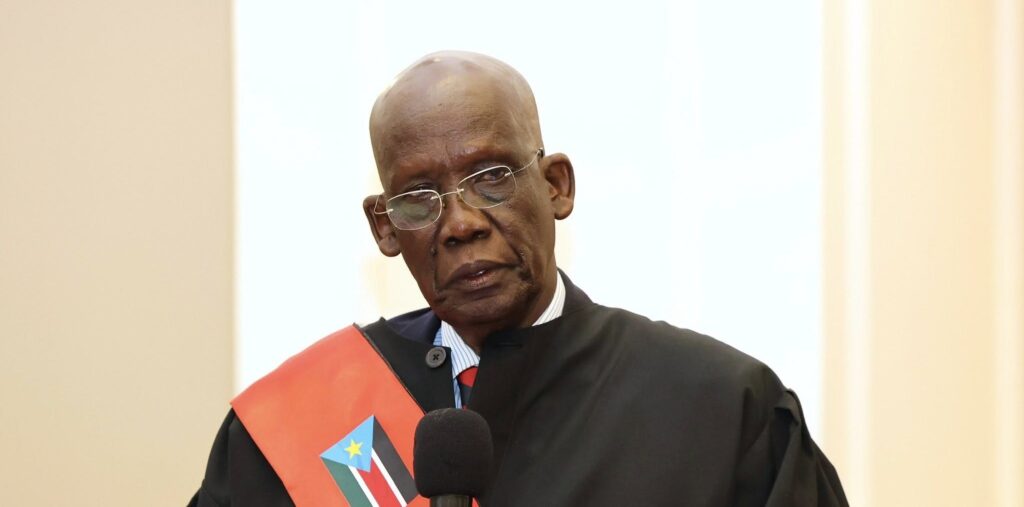South Sudan’s President Salva Kiir Mayardit swore in Dr. Benjamin Baak Deng as the new Chief Justice Monday, tasking him with leading reforms.
The swearing-in ceremony at the presidency came days after Kiir dismissed former Chief Justice Chan Reec Madut and his deputy, John Gatwech Lul.
Dr. Baak was sworn in alongside his newly appointed deputy, Laku Tranquilo Nyombe, with Supreme Court Justice Dr. James Alala Deng administering the oath.
The appointments have not been approved by the National Legislative Assembly, which remains in recess.
Under South Sudan’s constitution, Supreme Court justices must be appointed by the president “upon the recommendation of the Judicial Service Commission” and approved by a two-thirds majority in the assembly.
The judiciary, which the constitution designates as independent from the executive and legislative branches, has long faced public and professional criticism over inefficiency, poor working conditions for judges and alleged executive interference.
Speaking at the ceremony, Kiir described the judiciary as the “foundation of justice and stability in any nation” but acknowledged systemic challenges, including case backlogs, weak enforcement of rulings and limited rural access to justice.
He urged the new leadership to ensure transparency, accountability and timely justice delivery.
“The judiciary must operate independently and remain free from political interference,” Kiir said, also calling for ethical training for judges, prompt salary payments and anti-corruption measures.
In his acceptance speech, Chief Justice Baak pledged to tackle the massive backlog of unresolved cases and requested stronger government support to address the judiciary’s longstanding issues.
The leadership change comes as legal experts and citizens demand an overhaul of South Sudan’s justice system, which critics say has been undermined by delays, underfunding and political influence.
Analysts say the appointment of Dr. Baak as the country’s Chief Justice could mark a turning point for judicial independence and efficiency.
Who is Dr. Baak?
Dr. Baak brings decades of legal experience to the role. His career began at the University of Khartoum, where he earned a Bachelor of Laws (LLB) in 1978. He later obtained advanced degrees, including a Postgraduate Diploma in Law (2000), a Master of Laws in Intellectual Property (2004), and a PhD in International Environmental Law (2013), all from the same institution.
Dr. Baak started his judicial career in 1979 as a Judicial Legal Assistant in Sudan. Over the years, he rose through the ranks, serving as a Second Grade Judge (1981), President of the Council of Magistrates (1983), First Grade Judge (1986), and Judge of the Court of Appeal (1995). He was appointed to Sudan’s Supreme Court in 2002.
His work spanned rural and urban courts across Sudan and South Sudan, including postings in Malakal, Bentiu, Bor, Wau, and El Obeid.
Legal experts describe his appointment as a nod to his deep judicial expertise and commitment to the rule of law.




